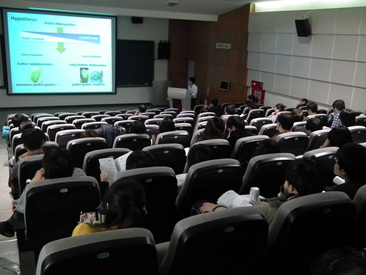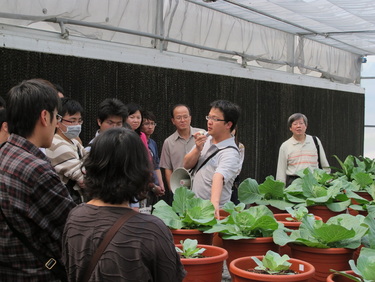核心研究領域
目前本所研究方向主要包含下列幾項(1)病源與宿主之間的交互作用(2)植物分子發育(3)生物科技開發應用。我們研究的病原主要包括:竹嵌紋病毒(Bamboo mosaic virus), 雙子星病毒 (Geminivirus),感染性華氏囊病毒 (Infectious bursal disease virus) 與假單孢菌 (Pseudomonas syringae)等。以竹嵌紋病毒為例,關於該病毒蛋白質的功能以及其RNA的特殊結構已有深入的研究。透過基因轉殖等生物技術操作,目前已發現有許多植物本身的蛋白質會參與病毒的復製、移動、與誘發植物的防禦機制等。有些植物蛋白質甚至會與病毒的RNA產生交互作用。利用現行基因體學、生理生化以及分子生物的工具,讓我們能一窺其中的奧秘。在植物分子發育上,我們著重於研究的植物器官包括:花朵、花粉、水稻胚芽以及植物種子油體。另外透過阿拉伯芥作為模式植物,我們也積極研究有關於植物的開花,花型以及植物老化的機制。對於某些在花粉或是水稻上會特定表現的蛋白,也有深入的研究。在其他生物科技應用方面,主要針對蛋白質表達平台的開發、疫苗的研發、轉基因植株的應用、中草藥活性成分的鑑定以及微生物酵素的開發應用。若是對於各領域有興趣者,可透過聯結至各實驗室網頁獲得相關資訊。



